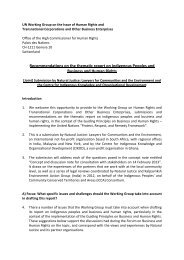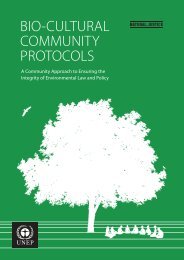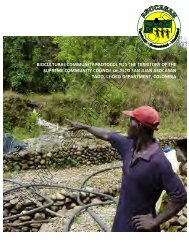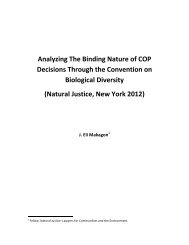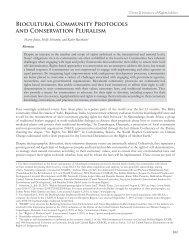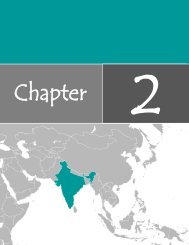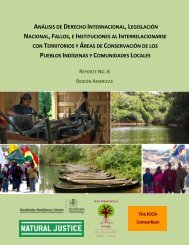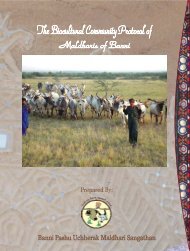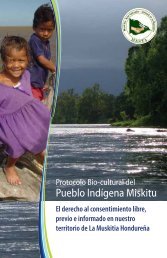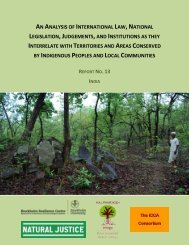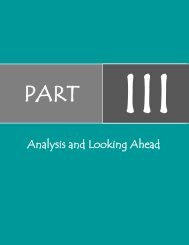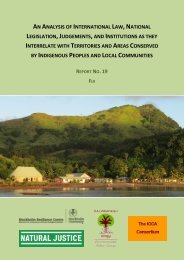English - Natural Justice
English - Natural Justice
English - Natural Justice
Create successful ePaper yourself
Turn your PDF publications into a flip-book with our unique Google optimized e-Paper software.
Despite this, however, national and sub-national judicial systems are inherently challengingfor Indigenous peoples and local communities. First, many cannot show standing before thelaw, negating the opportunity to defend their collective rights and interests in court. Second,the length of time that court cases take and their associated costs (including financial costsof lawyers as well as costs for time away from daily activities, travel from rural areas,communication with legal advisors, and so on) can be significant deterrents, especially whengoing against parties with seemingly limitless funds and political clout to challenge adversedecisions. Third, even when communities win cases, enforcing the judgements can beextremely challenging. Beyond these common issues, some countries suffer fromparticularly acute disrespect for the rule of law and corruption, which further undermine theintegrity and effectiveness of the judicial system.Lack of StandingIn Suriname, for example, twelve members of the Indigenous community PK filed acomplaint in 2003 against the State Suriname and a mining company S., regarding gravelmining in the ancestral territory of the community causing harm to the communitymembers’ livelihood (Community members versus the State Suriname and mining companyS). The decision of the judge was to deny the plaintiffs’ claim as well as the company’scounterclaim, partly because the community members did not – in the court’s view – havethe status to claim the measures requested.c. Many Communities and Supporting Civil Society OrganizationsLack Knowledge of Legislative and Judicial SystemsMany Indigenous peoples and local communities and their supporters lack the awarenessand capacity to make full use of their rights and the associated legislative and judicialsystems. Some countries even lack a cadre of lawyers able to take on such cases. Conversely,governmental and private interests can be very effective at using the law to further theirown interests, often at the expense of peoples and communities.Unused RightsIn India, for instance, the Forest RightsAct has seen very inadequate use bycommunities to claim rights to andgovernance of forests. There areseveral reasons for this, including lackof awareness about the Act or how tomake claims; lack of proactiveassistance from governmentdepartments; deliberate obstruction bysome government agencies or officials;difficulties in finding evidence to filewith the claims; and superimposition oftop-down boundaries related togovernment schemes rather thanacceptance of customary boundaries ofthe community.Members of the federation of community conserved areas inNayagarh district, Orissa (India), meeting to discuss the 2006Forest Rights Act. © Neema Pathak Broome



